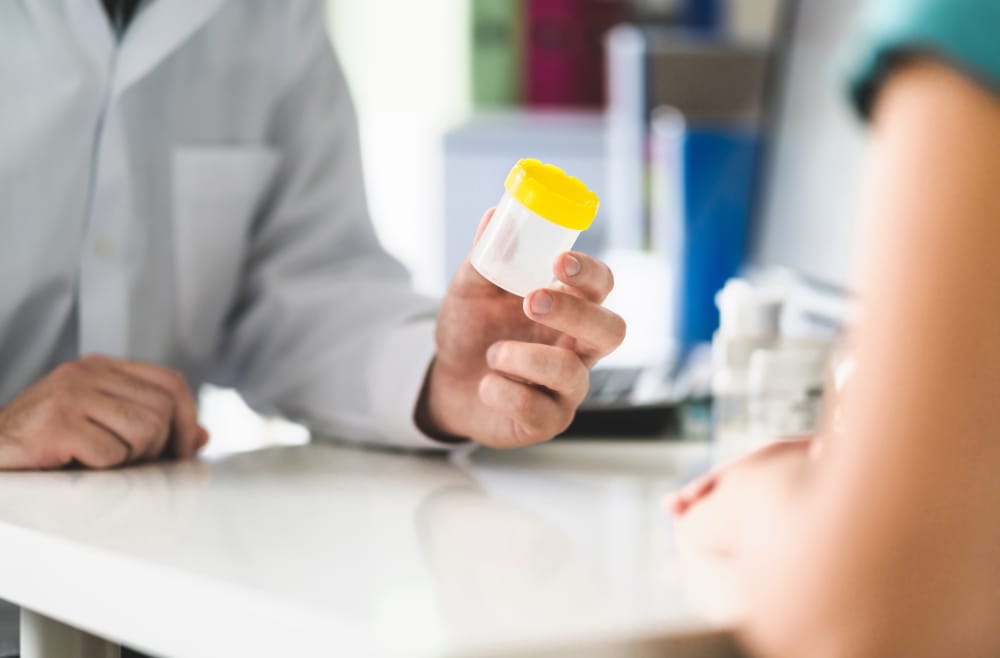Chlamydia


Chlamydia Symptoms, Causes, and Treatment: What You Need to Know
Chlamydia, a common sexually transmitted infection, often remains undetected because it rarely presents symptoms, yet untreated cases can result in serious health complications. Recognizing the signs of a chlamydia infection, understanding the causes, and exploring treatment options are crucial for early diagnosis and prevention.
This article will guide you through identifying chlamydia infection symptoms, understanding how the sexually transmitted infection spreads, and, most importantly, learning how to safeguard yourself and others effectively.
What Are the Signs And Symptoms of Chlamydia?
One of the trickiest aspects of chlamydia is that many infected individuals experience no symptoms at all. Here's what you should know about its potential warning signs:
Common Symptoms in Men and Women
- Men may experience:
- Pain during urination
- Discharge from the penis
- Testicular pain or swelling
- Women may notice:
- Unusual vaginal discharge
- Pain during intercourse
- Abdominal or pelvic pain
- Bleeding between periods
Asymptomatic Cases and Risks
It’s estimated that up to 70% of women and 50% of men with chlamydia show no symptoms. While asymptomatic cases may seem harmless, they actually pose the greatest risk as the infection can still cause harm internally and be unknowingly passed to sexual partners. For example, chlamydia can cause pelvic inflammatory disease or fertility issues if left untreated. Additionally, anal sex and vaginal sex are common ways individuals may get chlamydia, making protection essential to reduce the risk of this STI.
When to Seek Medical Attention
If you or your partner notice any of these symptoms—or if you’ve had unprotected sex—it’s crucial to book a consultation and test. Early diagnosis can prevent complications, protect others, and address the health issues chlamydia can cause.

What Causes Chlamydia?
- Unprotected vaginal, anal, or oral sex
- Sharing sex toys without proper cleaning or a condom
- Passing from mother to baby during childbirth if you are pregnant and have chlamydia
- Young adults under 25 years old.
- Men who have sex with men (MSM).
- Those with multiple sexual partners or inconsistent condom use.
Chlamydia is caused by a type of bacteria called Chlamydia trachomatis. Once transmitted to the genital areas, rectum, or throat, the bacteria multiply and cause infection. Chlamydia is a common sexually transmitted infection that can often go unnoticed without testing.
How It Spreads
The infection spreads through:
Risk Factors
Certain groups in Singapore are more vulnerable to contracting chlamydia, including:
It’s crucial for people who have chlamydia to seek treatment early to avoid complications. If you suspect exposure, get tested for chlamydia to protect your sexual health.
How is Chlamydia Diagnosed?
Diagnosing chlamydia is simple, quick, and painless. It usually involves:
- A urine test
- A swab of the affected area (throat, rectum, or genitals)
If you're in Singapore, Mediway Medical Clinic offers confidential STD testing. It's important to incorporate such screenings into your routine, particularly if you're sexually active.
Importance of Regular Testing
Since chlamydia often lacks symptoms, regular STD screenings are a proactive step to catch it early. Left untreated, chlamydia can cause symptoms that lead to serious health problems, such as damage to the fallopian tubes, which increases the risk of ectopic pregnancy. I always recommend annual tests, or even more frequently if you’ve had recent unprotected sex or a new partner.

Management and Treatment For Chlamydia Trachomatis
- Azithromycin (a single dose)
- Doxycycline (a course of 7 days)
- Ensure all recent sexual partners are tested and treated, as people with chlamydia can spread the infection.
- Abstain from sexual activity until the infection is fully cleared (typically 7 days after completing antibiotics).
Treating chlamydia is straightforward with antibiotics, usually:
It’s vital to complete the entire course of medication, even if symptoms improve. Improper treatment could leave the infection unresolved, lead to infertility, or cause antibiotic resistance.
Preventing Reinfection
Treatment doesn’t mean immunity—chlamydia can recur. To avoid reinfection:
While chlamydia can sometimes be symptomless, symptoms do occur in some cases, and the infection can cause complications if left untreated.

Prevention Tips
Preventing chlamydia is essential for overall sexual health. Following effective strategies can significantly reduce the risk of infection and promote safe, healthy practices in relationships.
Practice Safe Sex
Here’s how you can protect yourself and others:
- Use condoms consistently during vaginal, anal, or oral sex.
- Clean sex toys thoroughly or use new condoms on them between partners.
Schedule Regular Screenings
Prevention begins with knowledge. Book regular STD screenings—especially if you're in a high-risk group. Mediway Medical Clinic provides discreet, efficient testing services in Singapore. Make sure to get tested 4 weeks after treatment to confirm the infection is cleared.
Communicate with Your Partner
Open communication is key. Discuss sexual health, encourage partners to get tested, and ensure both of you receive treatment if necessary before engaging in unprotected oral or anal sex.
What Happens If Chlamydia Is Left Untreated?
When untreated, chlamydia can:
- Lead to pelvic inflammatory disease (PID) in women, potentially causing infertility.
- Cause epididymitis in men, leading to pain and swelling in the testicles.
- Increase the risk of contracting HIV.
Pregnant women with untreated chlamydia risk passing the infection to their babies, leading to pneumonia or eye infections in newborns.

FAQ on Chlamydia
How is Chlamydia transmitted?
Chlamydia is primarily transmitted through sexual contact, including vaginal, anal, and oral sex, with an infected person. The bacterium can be passed on even if the infected person does not have any symptoms. Key transmission points include:
- Sexual Contact: Direct contact with the penis, vagina, mouth, or anus of an infected person.
- Mother-to-Child: An infected pregnant woman can pass the infection to her baby during childbirth, potentially causing eye infections or pneumonia in the newborn.
- Asymptomatic Transmission: Because many people with chlamydia do not exhibit symptoms, they can unknowingly transmit the infection to their sexual partners.
What are the symptoms of Chlamydia?
Many people with chlamydia do not experience symptoms. When symptoms do occur, they usually appear within days to 3 weeks, but can take several months. Symptoms may include:
- In women:
- Abnormal vaginal discharge
- Burning sensation during urination
- Pain during sexual intercourse
- Bleeding between periods
- Lower abdominal pain
- In men:
- Discharge from the penis
- Burning sensation during urination
- Pain and swelling in one or both testicles
- Pain during ejaculation
- In both:
- Rectal pain, discharge, or bleeding if the infection is in the rectum
- Eye infection (conjunctivitis) if it spreads to the eyes through contact
What are the complications of untreated Chlamydia?
If left untreated, chlamydia can lead to serious health problems, including:
- In women:
- Pelvic Inflammatory Disease (PID): This can cause chronic pelvic pain, damage to the fallopian tubes, and lead to infertility. PID can also increase the risk of ectopic pregnancy, where a fertilized egg implants outside the uterus, which can be life-threatening.
- Infertility: Untreated chlamydia can cause scarring and blockage of the fallopian tubes, leading to difficulties in becoming pregnant.
- Chronic Pelvic Pain: Persistent pain in the pelvic area due to damage and inflammation caused by the infection.
- In men:
- Epididymitis: Inflammation of the epididymis, a tube that carries sperm from the testicles, which can cause pain, fever, and, in severe cases, infertility.
- Prostatitis: Inflammation of the prostate gland, which can cause pain, difficulty urinating, and sexual dysfunction.
- In both:
- Reiter's Syndrome: A type of reactive arthritis that affects the joints, eyes, and urethra, causing pain and swelling.
- Increased Risk of Other STIs: Having chlamydia can increase the risk of contracting other sexually transmitted infections, including HIV.
How is Chlamydia diagnosed?
Chlamydia is diagnosed through:
- Urine Test: Testing a urine sample for the bacteria.
- Swab Test: Taking a sample from the cervix, urethra, throat, or rectum and analyzing it in a lab.
Quick diagnosis and treatment are important to prevent complications and further spread.
How is Chlamydia treated?
Chlamydia is usually treated with antibiotics. The most common treatments include:
- Antibiotics:
- Azithromycin: Typically given as a single, large dose.
- Doxycycline: Usually taken twice a day for seven days.
- Follow-up Care: It’s important to complete the entire course of antibiotics, even if symptoms disappear. Avoid sexual activity until the infection is fully cleared, usually after one week of treatment. Follow-up testing may be recommended to ensure the infection is gone.
- Treatment for Partners: Sexual partners should also be tested and treated to prevent re-infection.
Can Chlamydia be prevented?
Chlamydia can be prevented by using condoms during sexual activity, having regular STI screenings, and maintaining a mutually monogamous relationship with an uninfected partner.
How May I Proceed?
If you're unsure which test to take or need further clarification, please don't hesitate to contact us via WhatsApp at >8185 5577. We're happy to address your concerns and guide you through the options that best suit your needs.
